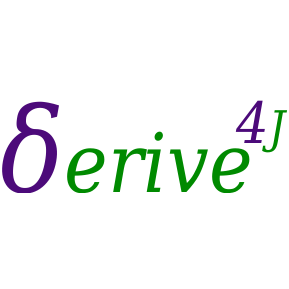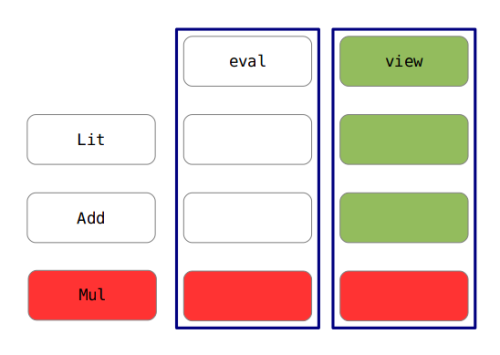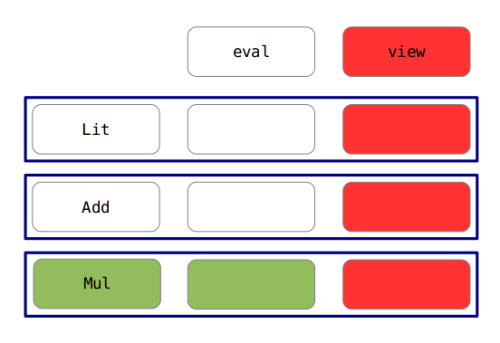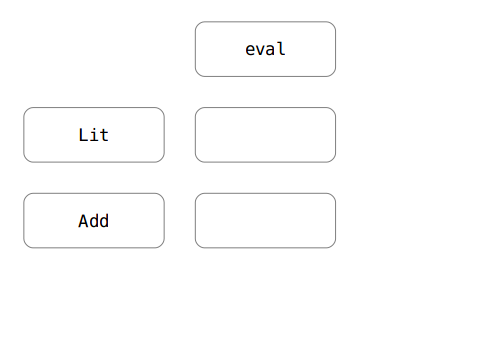Encoding FP in Java
is easier than in Go!

new LambdaWorld<Cadiz>(2018L)
This presentation is available at

https://gracious-hypatia-aac58b.netlify.com/
(Alt-P for presenter notes)
twitter: @jb9i / github: @jbgi


Jean-Baptiste Giraudeau
- heavy French accent
- too many years of Java experience
- last 3 years as Scala programmer
- core contributor of Scalaz and FunctionalJava
- Author of Derive4J
- Guilty of torturing Java and Scala into confessing their hiden FP abilities.
Thesis of this talk
Typed Functional Programming is the most pratical way to write maintainable, working software.
Java is partialy supportive of this thesis
Java can encode System F, but, out-of-the-box, is missing:
- IO effect tracking
- Parametricity
- Native sum types / GADT
- Extensibility other than inheritance
- Tail call optimization
- Support for Lazy evaluation
- HKT (aka. type constructor polymorphism, ie. System Fω)
Encoded in this talk
| Desired | Encoded with |
|---|---|
| [X] IO effect tracking | No side effects + IO<A> (from FunctionalJava). |
| [X] Parametricity | Ignoring everything that can break it. |
| [X] sum types / GADT | List<A>{ <X> X cases(X nil, F2<A, List<A>, X> cons);} (Scott encoding). |
| [X] Expression Problem solution | Object algebras |
| [X] Lazy evaluation | static <A> List<A> lazy(F0<List<A>> as) (with memoization). |
| [/] HKT | List<A> => Hk<List<?>, A> (Unsafe). |
Can break Parametricity
hence, in pure code, we completly ignore the existence of:
nullinstanceOf/ type casts- non-deterministic exceptions
- all methods on
java.lang.Object
How to prove an encoding is correct?
- Hot(t) take: if two types are isormorphic then they are the same.

- We ignore bottom values, including null, as per Fast and Loose Reasoning is Morally Correct.
Using cardinality to prove isomorphism
Same cardinality ≃ Isormorphic
| Type | Cardinality |
|---|---|
Void | 0 |
Unit / () | 1 |
Boolean | 2 |
Either<A, B> | A + B |
P2<A, B> | A * B |
F<A, B> | BA |
What about polymorphic functions??
We don't know the cardinality of A!
Yoneda to the rescue
If f is a Functor, then:
(∀ x. (a -> x) -> f x) ≃ f a
| Equivalences | Step |
|---|---|
∀ x. x -> x | Introduce unit, x ≃ () -> x: |
∀ x. (() -> x) -> x | Introduce Id functor (Id x = x): |
∀ x. (() -> x) -> Id x | Apply Yoneda: |
Id () | Id x = x: |
() | Q.E.D. |
Counting polymorphic types
x^a * x^b = x^(a+b)
Church/Scott encoded Either
Equivalent using internal visitor
Object are record of functions, right.
Easy extensibility via contravariance
Adding a new case to Either cases
On Derive4J steroids!!
An annotation processor, compatible with most FP libs
Adding new interpreters

Easy with ADT.
Adding new cases

How to do that while reusing existing interpreter without modification?
Object-algebra interfaces
First compile unit
Interpreters: Object algebras
First compile unit
Limitation of final tagless / object-algebra encoding
Programs are a "monolitic" fold.
Manipulating each part as first-class values (initial algebra) simplify some tasks, eg. serialization / delegation to GPU. or just for the simpler API!
Hopefully there is an isomorphism between the two encoding (Lambek’s theorem).
Step 1: Object-algebras are F-algebras
data ExpF = Lit Int | Add Int Int
Step 2: Exp as Fixed-point of ExpF
data Exp = Lit Int | Add Exp Exp
On the usefulness of lazy evaluation
aka. call-by-name with sharing.
Allows to implement many operation in the cleanest FP way.
(operation that benefits from TCO (eg. foldLeft) still need while loops).
Eg. Lazy List
Using annotation to define field names
Mandatory fibonacci, using fix point combinators
Scott encoding of an infinite stream
Implementation of lazy constructor
Thread-safe, tampolined lazy thunk
Back to F/Object algebras
No HKT => cannot parametrize carrier type. Solutions:
- GADT (but no more extensible)
- Unsafe HKT encoding
For unsafe encoding: see the Derive4J/HKT project (provide partial safety) and application in Streams à la carte: Extensible Pipelines with Object Algebras
GADT in Java!
TypeEq: a witness of type equality.
Other nice uses of GADT
- single method services:
interface Service {
<R> IO<R> execute(Command<R> cmd);
}
- Almost free (actually initial style) monads (see eg. eventsrc4j).
Pick at initial style monad in Java!
TypeEq avoid the use of continuations
That's all F-olks!
and remember:
"Generics should be the tool of choice for abstracting over types."
Brian Goetz
(and "<? super/extends >" makes you lose that game)
And now let's try
this GADT-based service:
interface Speaker {
<Answer> Option<Answer> ask(Question<Answer> q);
}
